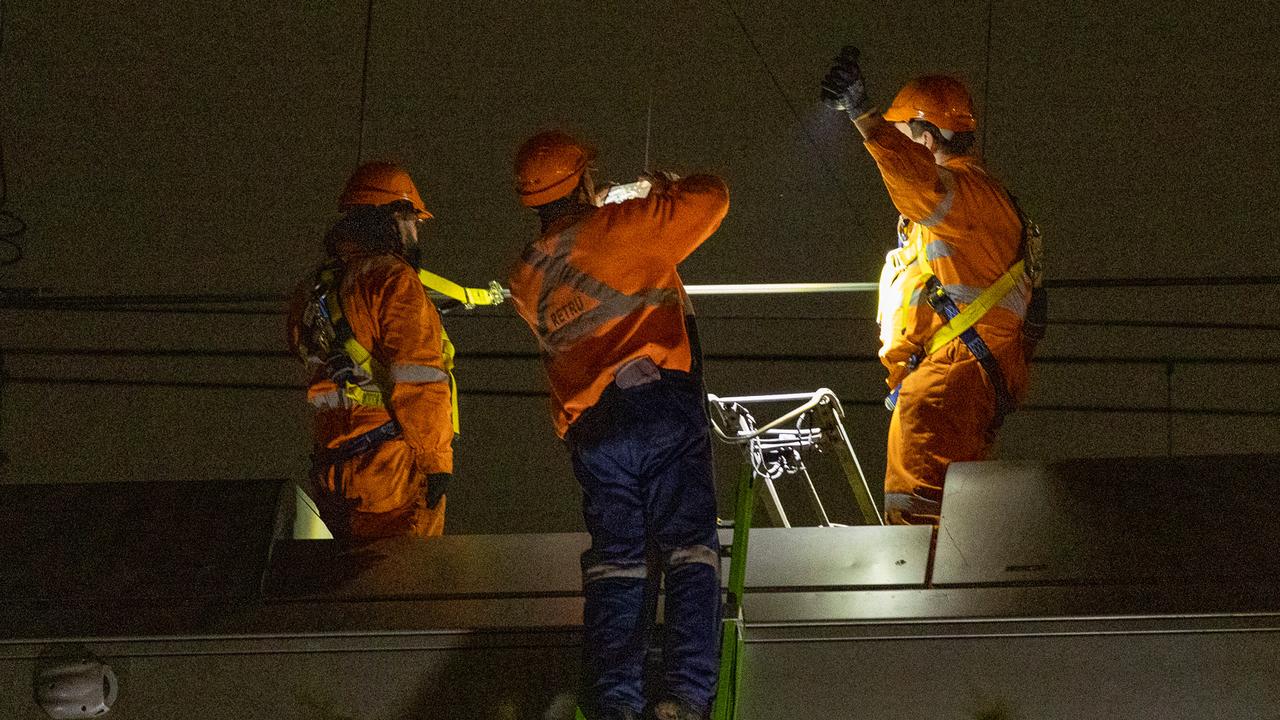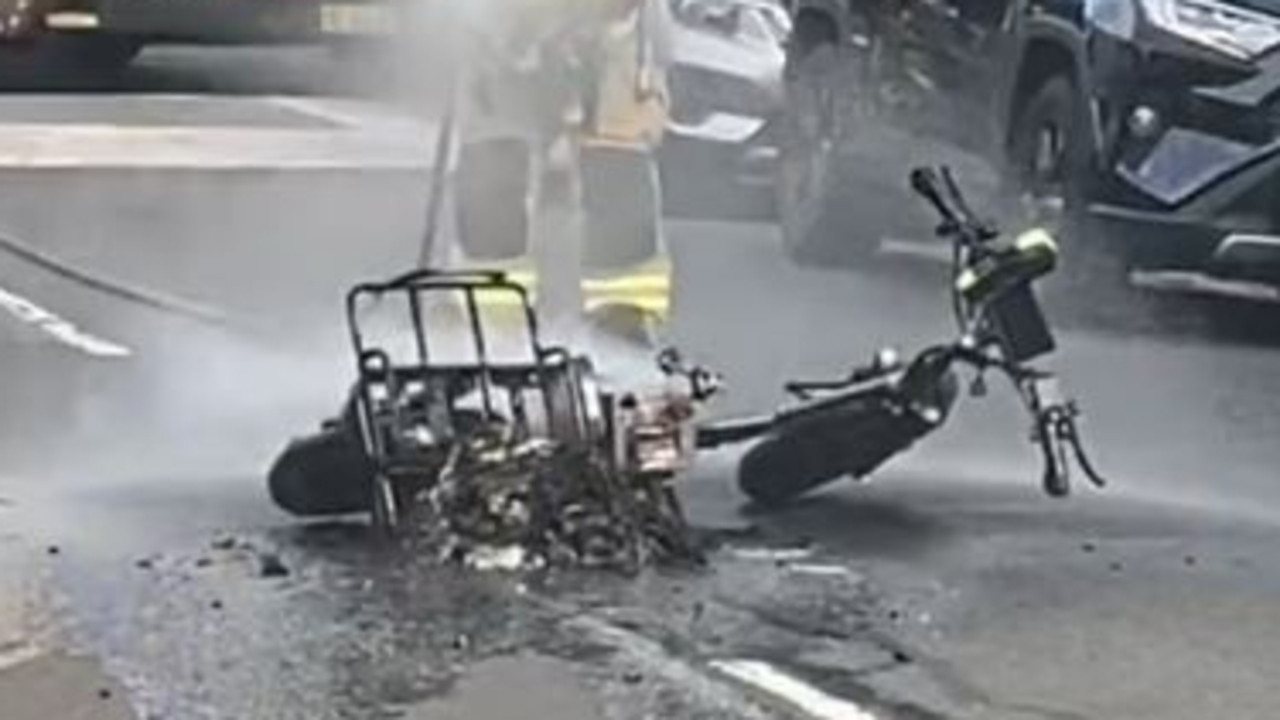Sydney is on the blink as surging electricity prices put 60,000 homes in danger of disconnection
EXCLUSIVE: THOUSANDS of homes across Sydney are on the verge of having their lights turned off as the government is forced to hand out a record number of rescue cheques to help families pay their power bills.

NSW
Don't miss out on the headlines from NSW. Followed categories will be added to My News.
- Households will pay up to $400 more for power
- Electricity shock: Business bills have doubled in the past decade
TENS of thousands of people across Sydney are on the verge of having their lights turned off, with the government forced to roll out rescue cheques in a bid to help struggling families pay their electricity bills.
Calculations from The Daily Telegraph can reveal there are roughly 68,400 homes across NSW at risk of having their power cut because they cannot afford their rocketing bills.
It comes as the NSW government boosts the budget for their Energy Accounts Payments Assistance (EAPA) scheme to $17.1 million for this year. The scheme gives emergency $50 vouchers to households at risk of power disconnection — with the average household needing five vouchers.
Data released exclusively to The Daily Telegraph reveals Western Sydney is being hit the hardest, with the top 10 metropolitan postcodes needing the most government help to pay bills all in the region.
Campbelltown is set to receive the most financial help in the metropolitan area, with $404,750 set aside to help families pay their bills. Calculations by The Daily Telegraph reveal there an estimated 1619 families there at risk of disconnection.
Auburn is second on the list of areas facing the most bill pressure with $317,650 allocated and 1270 households estimated to be at risk of disconnection, followed by Blacktown and Bankstown
NSW Energy Minister Don Harwin is so concerned that he revealed he has ordered the Independent Pricing and Regulatory Tribunal (IPART) to investigate what is causing the soaring bills amid accusations energy providers are price-gouging customers.
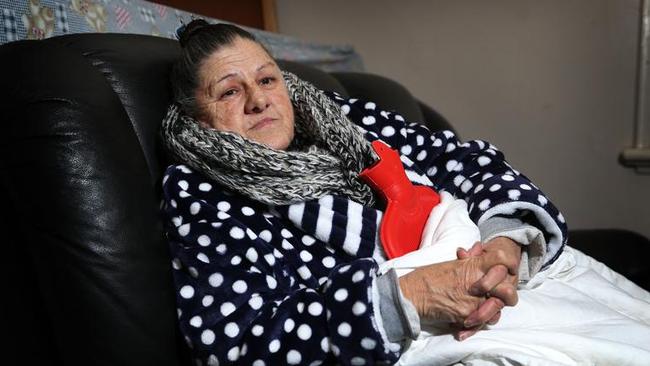
It comes after Australian Competition and Consumer Commission chairman Rod Sims announced he was investigating whether there was price manipulation occurring in NSW as a result of only a few generators operating.
Mr Harwin told The Daily Telegraph he had asked IPART to “examine” energy and gas price movements into 2017-18 and report back on whether the price increases reflect “efficient costs in a competitive market”.
He said nationally the energy market was “broken” with clean energy policies, gas exportations and the shutdown of power stations creating a perfect storm.
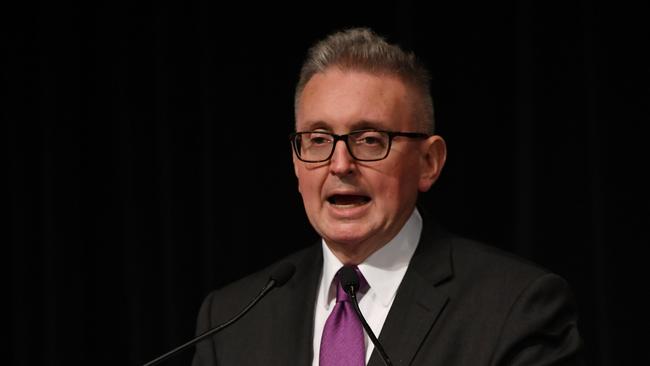
“We are concerned about national energy rises and we are pushing our federal counterparts hard to ensure there is a sensible plan to fix the broken national energy market,” Mr Harwin, who believes more competition is needed to drive down prices, said.
He said he was also making the emergency support vouchers digital to help speed up access for families in crisis.
Charity workers said Western Sydney was being hit with a double whammy because the freezing temperatures and high proportion of fibro homes meant families were being whacked with bigger bills.
The situation has become so dire that 77 per cent of low-income NSW households are going without heating in a bid to reduce their onerous power bills, new research from the NSW Council of Social Service (NCOSS) shows. And one in three low-income earners have been forced to stop using hot water for bathing to pay for energy bills.
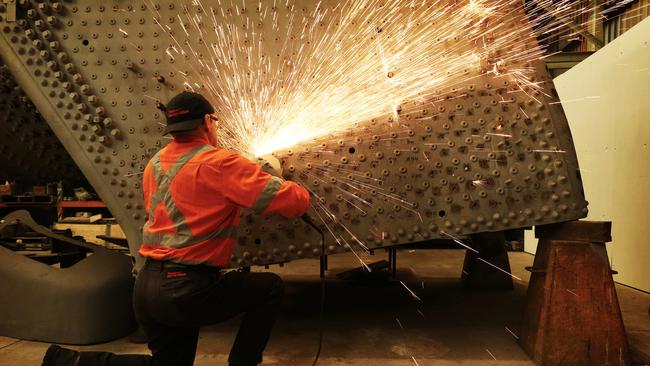
Economist Dr Bruce Mountain called for an investigation into the profitability and costs of the energy retail sector, noting the difference between the profitable established retailers compared to the new entrants.
NCOSS chief executive Tracy Howe said “electricity poverty” was becoming just as big a concern as housing affordability in the state.
“We’ve seen the lengths people are taking to pay their bills get more extreme in recent years,” Ms Howe said.
“The recent price hikes are only going to make the situation worse and we don’t want to see more households choosing between putting food on the table and paying a bill.”
No power to the people as desperate families shiver
ANY time Yarnel Tuau switches on a light her mind is sent into overdrive calculating about how much it is costing her.
Like a worrying number of Western Sydney residents, Ms Tuau’s family cannot afford any heating.
The 25-year-old lives in a seven-person household with her mother, adult siblings and some of their partners.

Their Macquarie Fields rental home is a fibro property with no insulation that becomes an ice brick at night. But rising costs mean all the family can do to fight the freezing temperatures is wrap up in blankets and huddle up in bed early.
Now pregnant, Ms Tuau said she is often sick and had to call an ambulance a few weeks ago when her flu took a turn for the worse.
“I just can’t handle it, it’s too cold to do anything but go to bed,” she said. “My brother’s girlfriend liked to stay up when she was here because it’s her routine, but even she’d have four pairs of pants on, a dressing gown and a blanket.”
She said the family also cut back on groceries when bills got high.
Ms Tuau’s brother James said that the family was still being priced out of heating their home.
“It gets hard … we all wander round with blankets wrapped around us,” the 26-year-old labourer said.
“My mum tried putting in a rule where there were only allowed to be two lights on, so if you turned on an extra one another one had to go off.”
At the Macquarie Fields Salvation Army, Lieutenant Christian White is seeing more families being disconnected because they cannot afford their bills.
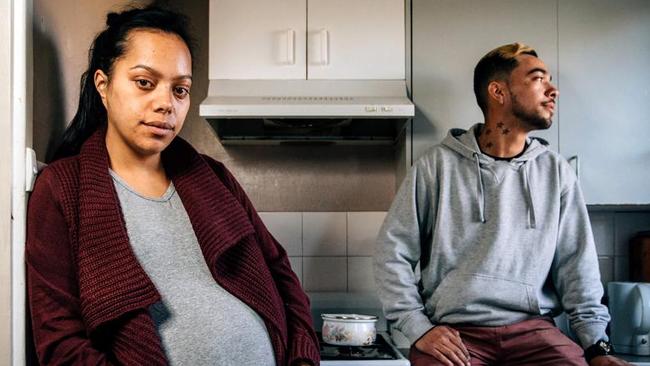
“People are cutting back on food, kids’ school excursions, you name it,” he said.
Volunteer Jan Nicoll said she had even seen families who had stopped washing clothes. “Hot water washing is not even in existence here,” she said. “You can actually see that reality in their clothing and their blankets, towels.”
Alice, a local pensioner, spends her evenings rugged up in a beanie and scarf trying to fight the cold. Her husband has cancer and if they stopped heating their house it could put his health in jeopardy. But they have started sleeping in a smaller room than their usual bedroom because it’s cheaper to heat and she only uses a tiny convection oven to cook.
“Across the community people are struggling,” Alice said.

